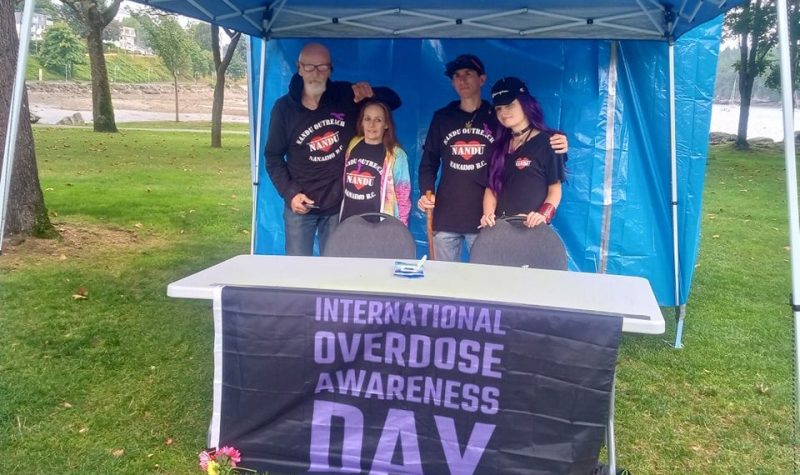On Thursday, the BC NDP introduced legislation that would prohibit use of illicit drugs in public spaces.
The law would ban drug use within six metres of building entrances and bus stops; as well as within 15 metres of playgrounds, spray and wading pools, and skate parks. It would also ban consumption of drugs in parks, sports fields and on beaches.
Under the legislation police will have the power to arrest anyone found using drugs in those areas and seize and destroy the drugs. It also requires that any municipal bylaw around public drug use be made in consultation with the medical officer of health and regional health authority.
Premier David Eby said the law balances the rights of drug users with those of the public accessing public spaces.
“This balance between making sure we're providing opportunities for people with addiction to get into overdose prevention sites, getting them out of the criminal system, recognizing their health issues and getting them into treatment,” said the premier. “It never was about, and it can not be about, using hard drugs wherever you like.”
Caitlin Shane, a lawyer with Pivot Legal Society, said the legislation was disappointing.
“It marks a clear departure on the part of the BC government to turn its back on decriminalization,” she said. “We know that the people who are going to be hit hardest by a law like this are going to be unhoused people who use drugs and it's just a really misguided and purely political approach.”
Donald McGillivary from the Nanaimo Area Network of Drug Users says he thinks the new law is needed but people who are homeless don’t have anywhere to go to use drugs.
“Don't get me wrong, it [the law] is needed. Because it gets out of hand, the people are everywhere and anywhere, and there's children out there, there's people that don't want to see it and I don't blame them,” he said. “You’ve got to do something with them [though]. You can't just say, 'Hey, you can't do this anymore.' That's not going to work.”
Premier Eby told reporters that his past experience as a prosecutor informs his policy choices around decriminalization and the Public Drug Use Act.
“I worked briefly as a drug prosecutor, and the reason for the word 'briefly' there, is it was awful work,” he told reporters. “You sit there in the courthouse, everyone is worse off here. There is no positive outcome that is coming from this.”
Premier Eby says that criminal law isn’t the best way to respond to drug use, but "the only way that's going to continue is in British Columbia is if people understand they don’t have to give up parks, bus stops, and small businesses in order for us to treat people with compassion and understanding about their addiction.”
Shane says she would like to see the government take a harm reduction approach by establishing more overdose prevention sites and enacting a sunset clause that would repeal the law at the same time that the decriminalization pilot project ends in 2026.
She said that Pivot Legal gave the province some advice before the legislation was drafted.
“We said, if you're going to pass this law, don't allow it to be enforceable in communities where there are no indoor spaces for people to use drugs. Because if, if you're allowing it to be enforced, in a community where there's nowhere to go, literally, then you are singling out unhoused drug users, you're making it impossible for them to exist.”
Premier Eby acknowledges that some communities have a lack of safe consumption sites and that the province is willing to work with municipalities but that isn’t always easy.
“We have had a challenge, frankly, in some communities that are not interested in having overdose prevention sites in their town, in their city,” he said. “I hope that with this legislation that they recognize how these pieces are going to work together to be able to support people, get them into the right place and connect them into the system to get the care they need.”
McGillivary says that Nanaimo’s sole overdose prevention site is woefully inadequate, and the city needs more sites with more capacity. Currently one Overdose Prevention Site in the city operates seven days a week at 250 Albert Street from 11 a.m. to 9 p.m. with eight inhalation and three injection booths.
“You can't just tell them they can't do this and not give them a place to go do it,” he said. “If they're only going to allow up to eight people in an OPS, they better open up a whole hell of a lot more OPSes.”
Listen to CHLY's report below:


